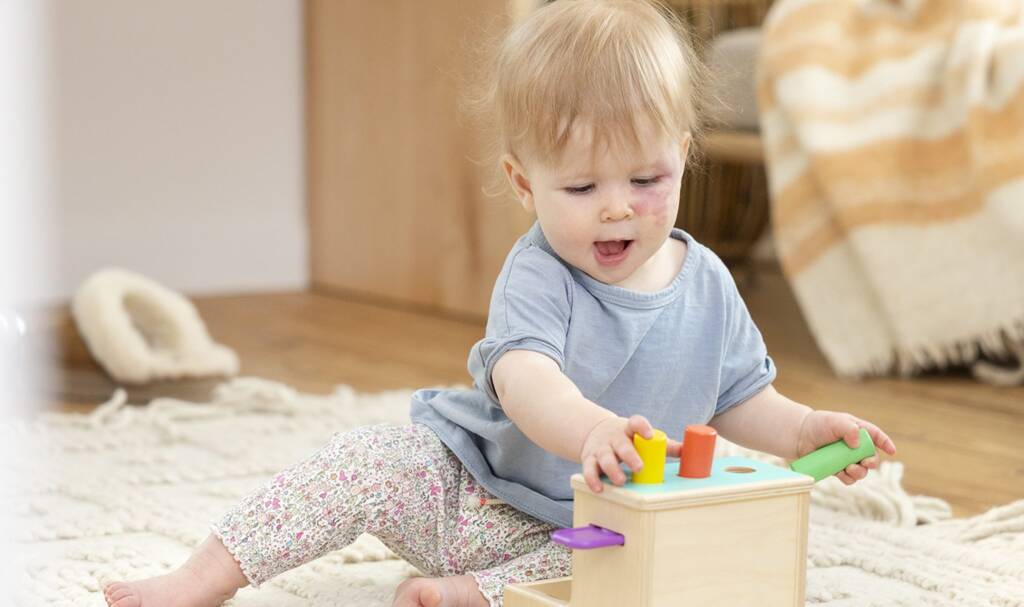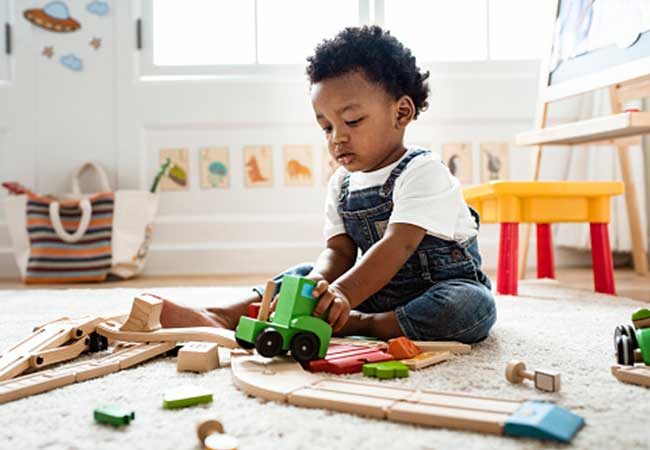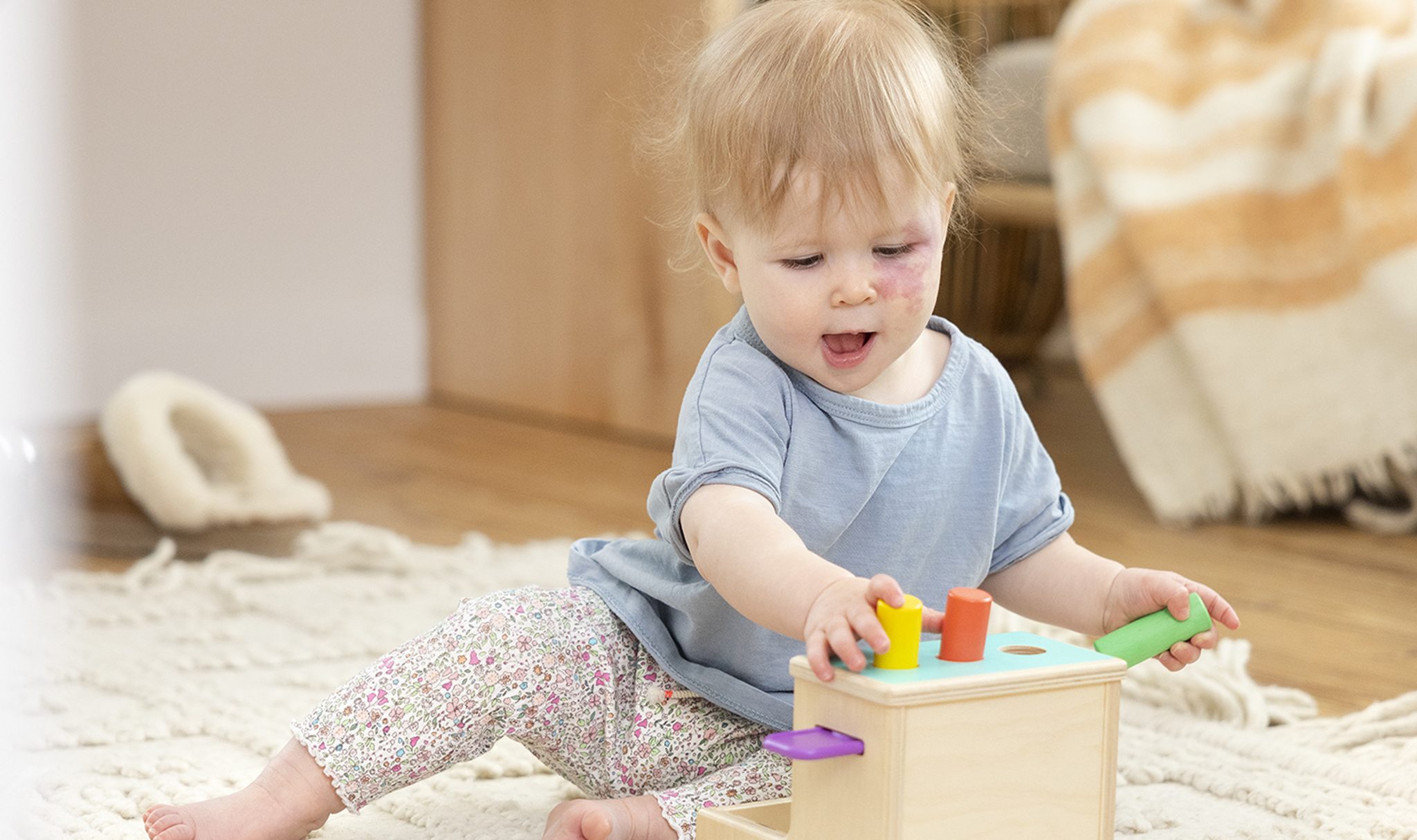Independent play is an essential part of a baby’s development, contributing significantly to their cognitive, emotional, and physical growth. It allows babies to explore their environment, develop problem-solving skills, and build confidence. This comprehensive guide aims to provide parents with the knowledge and tools necessary to encourage independent play in their babies, addressing its benefits, strategies for implementation, and common concerns.
What is Independent Play?
Independent play is the time when a baby engages in activities alone, without direct adult involvement. This type of play is crucial for their overall development as it promotes self-reliance and creativity. By allowing babies to explore and interact with their environment independently, they learn to entertain themselves and develop a sense of autonomy.
Benefits of Independent Play
Understanding the benefits of independent play helps parents appreciate its importance. These benefits include improved focus, creativity, and self-reliance.
Cognitive Development
Independent play is a critical component of cognitive development. When babies play alone, they explore their surroundings, manipulate objects, and engage in problem-solving activities. This exploration and manipulation foster cognitive skills such as memory, attention, and reasoning. Independent play also encourages babies to think creatively and develop their imagination.
Emotional Growth
Independent play contributes to emotional growth by allowing babies to manage their emotions and develop resilience. When babies play alone, they learn to cope with frustration and disappointment, which are essential skills for emotional regulation. This type of play also promotes a sense of security and confidence, as babies realize they can entertain themselves and find joy in their own company.
Physical Development
Engaging in solo activities helps babies improve their motor skills and physical coordination. Independent play often involves activities that require movement, such as crawling, reaching, and grasping. These activities help develop fine and gross motor skills, contributing to overall physical development.
Creativity and Imagination
Unstructured playtime encourages creativity and imagination as babies invent their own games and stories. When left to play alone, babies use their imagination to create scenarios and solve problems, fostering creative thinking. This type of play also allows babies to express themselves and explore their interests and passions.

Developmental Milestones in Independent Play
Recognizing the stages of independent play helps parents set realistic expectations and support their child’s growth.
0-3 Months
At this stage, babies are just beginning to explore their surroundings. Tummy time and visual stimulation are key activities that promote independent play. During tummy time, babies strengthen their neck and shoulder muscles, which are essential for future motor skills. Visual stimulation, such as looking at colorful toys or mobiles, encourages babies to focus and track objects with their eyes.
3-6 Months
Babies start to reach for toys and explore objects with their hands and mouths, initiating basic independent play. This stage is characterized by increased hand-eye coordination and curiosity. Babies begin to understand cause and effect as they manipulate toys and observe the results of their actions.
6-9 Months
Sitting up and crawling allows babies to explore more actively, leading to longer periods of independent play. During this stage, babies become more mobile and can move around their environment to explore different toys and objects. This increased mobility encourages curiosity and independence.
9-12 Months
Babies become more mobile and curious, engaging in more complex play activities and exploring their environment more independently. At this stage, babies start to develop preferences for certain toys and activities. They also begin to imitate adult behaviors and incorporate them into their play.
Setting Up the Environment
Creating a safe and stimulating environment is crucial for encouraging independent play.
Safe Play Areas
Designate specific areas in your home that are safe for the baby to play independently, free from hazards. These areas should be free from sharp objects, small items that can be swallowed, and other potential dangers. Using baby gates and playpens can help create a secure play area.
Age-Appropriate Toys
Select toys that are suitable for your baby’s age and development stage to keep them engaged and safe. Age-appropriate toys are designed to meet the developmental needs of babies at different stages. For example, soft toys and rattles are suitable for younger babies, while stacking toys and shape sorters are ideal for older babies.
Minimal Distractions
Keep the play area free from unnecessary distractions like loud noises or electronic devices to help your baby focus on their play. A quiet and calm environment allows babies to concentrate and engage more deeply in their activities.
Strategies to Encourage Independent Play
Practical strategies can help foster a love for independent play in babies.
Start Early
Introduce independent play from an early age to help your baby become accustomed to spending time alone. Starting early helps babies develop the skills and confidence needed for independent play. Begin with short periods and gradually increase the duration as your baby becomes more comfortable.
Gradual Increase
Gradually increase the duration of independent play as your baby becomes more comfortable with the concept. Start with a few minutes of independent play and slowly extend the time as your baby becomes more engaged and confident in their ability to play alone.
Encourage Exploration
Allow your baby to explore different toys and activities on their own, fostering curiosity and independence. Providing a variety of toys and activities encourages babies to explore and discover new interests.
Offer Praise and Encouragement
Praise your baby for playing independently to reinforce the behavior positively. Positive reinforcement helps babies associate independent play with positive experiences and encourages them to continue playing alone.
Role of Parents in Independent Play
Parents play a crucial role in supporting and encouraging independent play without being overly involved.
Being Present but Not Intrusive
Stay nearby to provide a sense of security without directly engaging in the play. Being present without intruding allows babies to feel safe and confident while playing independently.
Creating a Routine
Incorporate regular periods of independent play into your baby’s daily routine to establish a habit. A consistent routine helps babies know what to expect and creates a sense of stability and security.
Observing and Understanding
Observe your baby’s play to understand their interests and developmental needs better. Paying attention to how your baby plays can provide insights into their preferences and developmental progress.
Addressing Common Concerns
Parents often have concerns about independent play. Addressing these can help alleviate worries and encourage a positive approach.
Safety Concerns
Ensure the play area is safe and free from hazards to prevent accidents during independent play. Regularly inspect toys and play areas for potential dangers and make necessary adjustments to ensure a safe environment.
Fear of Neglect
Understand that encouraging independent play does not mean neglecting your baby but rather supporting their development. Independent play is a healthy and important part of your baby’s growth and does not equate to neglect.
Managing Expectations
Set realistic expectations for the duration and nature of independent play based on your baby’s age and development stage. Understanding that independent play varies by age and individual preferences helps set achievable goals and reduces frustration.
Benefits of Independent Play for Parents
Independent play also offers significant benefits for parents, including time to rest and attend to other responsibilities.
Personal Time
Parents can use the time their baby spends playing independently to recharge and relax. Taking advantage of independent playtime allows parents to focus on self-care and other important tasks.
Household Management
Independent playtime allows parents to manage household tasks without constant supervision of the baby. This time can be used to complete chores, work, or simply take a break.
Creating Independent Play Activities
Designing engaging activities can help foster independent play.
Sensory Bins
Create sensory bins with different textures and objects for your baby to explore. Sensory bins provide a stimulating and engaging activity that encourages exploration and independent play.
Stacking Toys
Stacking toys help develop motor skills and keep babies engaged in solo play. These toys encourage problem-solving and fine motor skill development.
Musical Instruments
Introduce simple musical instruments like rattles or drums to encourage independent play and sensory development. Musical toys provide auditory stimulation and encourage creative expression.
Balancing Independent Play with Interactive Play
While independent play is essential, balancing it with interactive play ensures holistic development.
Importance of Interactive Play
Interactive play with parents or caregivers fosters bonding and social skills. It provides an opportunity for parents to engage with their baby and support their development through guided activities.
Finding the Right Balance
Create a daily schedule that includes both independent and interactive playtime. Balancing these two types of play helps ensure your baby receives the benefits of both independent exploration and guided interaction.
Overcoming Challenges in Independent Play
Challenges may arise, but with patience and strategies, they can be overcome.
Separation Anxiety
Gradually increase the time spent on independent play to help your baby adjust to being alone. Providing reassurance and gradually increasing the duration of independent play can help alleviate separation anxiety.
Short Attention Spans
Keep activities varied and age-appropriate to maintain your baby’s interest. Offering a variety of toys and activities helps keep your baby engaged and prevents boredom.

The Role of Technology in Independent Play
Technology can be a tool for independent play but should be used appropriately.
Screen Time Guidelines
Follow pediatric guidelines on screen time to ensure it is used beneficially. Limiting screen time and choosing educational content can help ensure technology is used in a way that supports development.
Educational Apps and Toys
Select educational apps and toys that promote learning and development. These tools can provide additional stimulation and support independent play in a constructive way.
Encouraging Sibling Independent Play
If you have multiple children, fostering independent play among siblings can be beneficial.
Individual Playtime
Encourage each child to have their own playtime to develop independence. Providing individual playtime helps each child develop their own interests and skills.
Shared Play Areas
Create shared play areas where siblings can play independently yet be together. Shared play areas encourage collaboration and social interaction while allowing for independent exploration.
The Impact of Independent Play on Sleep
Independent play can positively impact a baby’s sleep patterns.
Establishing Routines
Regular independent play can help establish a soothing pre-nap or bedtime routine. Incorporating independent play into your daily routine can help signal to your baby that it is time to wind down and prepare for sleep.
Reducing Sleep Issues
Engaging in physical play helps expend energy, leading to better sleep. Independent play can help tire your baby out and promote more restful sleep.
Case Studies and Testimonials
Real-life examples and testimonials highlight the benefits and successful implementation of independent play strategies.
Future Research Directions
Ongoing research continues to explore the benefits and best practices for encouraging independent play.










